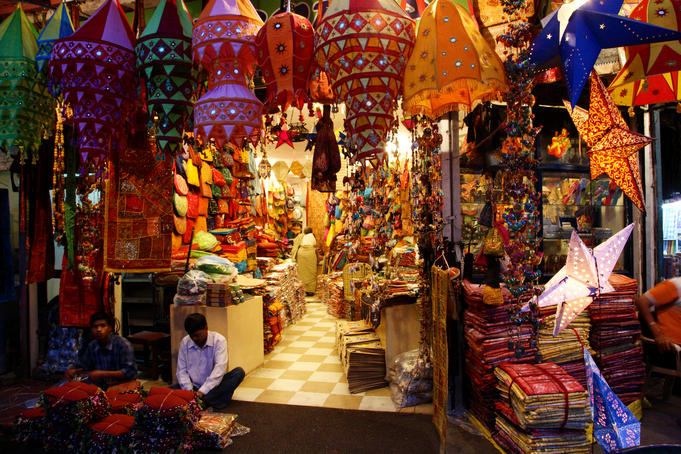FWP:
SETS == IZAFAT
COMMERCE: {3,3}
For background see S. R. Faruqi's choices. This verse is NOT one of his choices; I thought it was interesting and have added it myself. For more on Ghalib's unpublished verses, see the discussion in {4,8x}.
I was wondering why there were only 'four directions' here, when Ghalib usually likes to have six (by including up and down), as for example in {41,4}. But then Zamin helpfully identified the (Persian) 'four directions' as chauk bāzār (see the definition above). Many North Indian cities have a market called Chauk, based on the idea of four corners and/or a crossroads, which can also suggest a kind of 'main street' market.
The verse makes a truly enjoyable use of iẓāfat constructions (and the ke ). First of all, what happens in a bāzār-e ġhaflat̤ , a market 'of' heedlessness? Is 'heedlessness' a form of merchandise? Is it a characteristic of the merchants? Or is it like a dark cloud that envelops the whole area and everything that happens there?
And then, there are several ways-- all of them bleak-- to read the second line:
=Because people have suffered a loss of intellect, they heedlessly think they are acting profitably when they are not.
=Only because of a loss of intellect do people think there even exists such a thing as 'profit'; this is their heedlessness.
=Because of the harm done by intellect/knowledge (as in the bitter {201,8}), people decide they would be better off with heedlessness.

Asi:
That is, in every corner of the world the bazaar of heedlessness is 'hot', and the people of the world/age are heedless. These wretches don't understand that the reality of the thought of profit is only this much: that in this age, because of the harm of intellect, it arises. Beyond this, it has no existence.
== Asi, p. 139